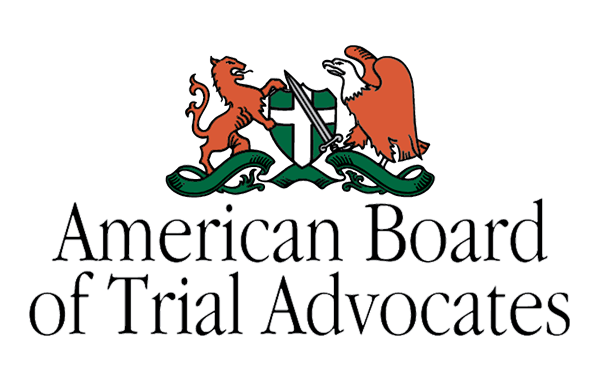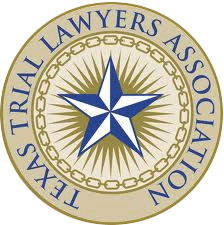Wrongful death cases in Texas present a unique set of challenges and complexities. Proving liability in these cases involves a detailed understanding of Texas law, meticulous gathering of evidence, and a persuasive presentation to demonstrate that the death was caused by another’s negligence or intentional act.
The process is not just a legal battle but a quest for justice for the families who have lost their loved ones. At Chavez Law Firm, we are dedicated to guiding families through these difficult times and ensuring that those responsible are held accountable.








The Legal Foundation of Wrongful Death Claims in Texas
Wrongful death claims in Texas are governed by the Texas Civil Practice and Remedies Code, specifically Chapter 71. This statute allows the surviving spouse, children, and parents of the deceased to file a wrongful death lawsuit. Understanding this statute is crucial, as it defines who can bring a claim and the type of damages that can be sought. The law aims to provide financial compensation for the survivors’ loss, encompassing not only the economic impact but also the emotional suffering caused by the untimely death.
A wrongful death claim must establish that the death was directly caused by the wrongful act, neglect, carelessness, unskillfulness, or default of another party. This can include a wide range of scenarios, such as medical malpractice, car accidents, defective products, or workplace accidents. The challenge lies in proving that the defendant’s actions or inactions were the direct cause of the death, which requires a thorough and strategic approach.

Protecting Your Rights
Gathering Crucial Evidence
Proving liability in a wrongful death case begins with the collection of robust evidence. This involves various types of evidence, including but not limited to, accident reports, medical records, eyewitness testimonies, witness reports, and, in some cases, forensic evidence. Each piece of evidence plays a critical role in constructing a compelling narrative that illustrates how the defendant’s actions led to the death.
Accident reports and medical records provide the foundational facts of the case. They establish the timeline, nature of the incident, and the immediate consequences. Eyewitness testimonies offer personal accounts that can corroborate the sequence of events and the defendant’s behavior. The witnesses, such as medical professionals, engineers, or accident reconstruction specialists, provide an in-depth analysis that can clarify complex aspects of the case, demonstrating how the negligence or intentional act occurred.
Establishing Negligence and Causation
One of the most challenging aspects of proving liability in a wrongful death case is establishing negligence and causation. Negligence involves demonstrating that the defendant owed a duty of care to the deceased, that this duty was breached, and that the breach directly caused the death. Causation, on the other hand, requires proving that the death would not have occurred but for the defendant’s actions.
In Texas, the concept of “proximate cause” is central to these cases. This means showing that the defendant’s actions were a substantial factor in bringing about the death and that the death was a foreseeable result of those actions. This often involves detailed legal arguments and a thorough understanding of precedents and case law.
Overcoming Defenses in Wrongful Death Cases
Defendants in wrongful death cases often employ various defenses to mitigate their liability. Common defenses include arguing that the deceased person was partially or fully responsible for the incident, that an intervening event caused the death, or that the defendant’s actions did not directly lead to the death.
Presenting a Persuasive Case
Presenting a persuasive case in a wrongful death lawsuit involves more than just gathering evidence and establishing legal arguments. It requires a compelling narrative that resonates with the jury, highlighting the human element of the tragedy. This means demonstrating the profound impact the death has had on the survivors, both emotionally and financially.
The loss of a loved one affects every aspect of the survivors’ lives, from daily routines to long-term plans. Effective presentation includes detailed testimonies from family members about their relationship with the deceased, the support they provided, and the void left by their absence. Additionally, witnesses such as economists or mental health professionals can provide quantifiable data on the financial and emotional impact of the loss.
The Role of the Attorney in Navigating the Legal Process
The role of an attorney in a wrongful death case is multifaceted. From the initial consultation to the final resolution, the attorney must be a diligent advocate, a compassionate advisor, and a strategic litigator. The attorney’s experience is crucial in navigating the legal process, from filing the lawsuit to negotiating settlements or presenting the case in court.
An attorney’s first task is to thoroughly investigate the case, identifying all potential sources of evidence and determining the best legal strategy. This involves working with investigators, and witnesses to build a strong case. The attorney must also manage all legal filings and procedures, ensuring compliance with deadlines and legal requirements.
Throughout the process, the attorney must maintain clear and open communication with the clients, keeping them informed of developments and advising them on their options. This includes negotiating with insurance companies and opposing counsel to seek a fair settlement that reflects the full extent of the survivors’ loss. If a settlement cannot be reached, the attorney must be prepared to take the case to trial, presenting a persuasive and well-structured argument to the jury.
The Importance of Timely Action
Timely action is critical in wrongful death cases due to the statute of limitations. In Texas, the statute of limitations for wrongful death claims is generally two years from the date of death. Failing to file a claim within this period can result in the loss of the right to seek compensation. Therefore, it is crucial for survivors to act promptly and seek legal counsel as soon as possible.
Prompt action also helps preserve evidence. Over time, physical evidence can be lost, memories can fade, and witnesses may become unavailable. Early involvement of an attorney ensures that all relevant evidence is collected and preserved, providing a stronger foundation for the case.
Seeking Justice and Compensation
The ultimate goal of a wrongful death lawsuit is to seek justice and compensation for the survivors. While no amount of money can replace the loss of a loved one, financial compensation can provide stability and support for the future. Damages in wrongful death cases can include medical and funeral expenses, loss of income and benefits, loss of companionship and support, and emotional pain and suffering.
Securing fair compensation requires a comprehensive approach, considering both the immediate and long-term impacts of the loss. This involves detailed calculations and projections, often requiring input from financial professionals. The attorney must present a compelling case for the full extent of the damages, ensuring that the survivors receive the support they need to rebuild their lives.
Trusting Chavez Law Firm to Fight for Your Rights
Navigating a wrongful death case in Texas is a complex and emotionally challenging process. At Chavez Law Firm, we understand the profound impact that losing a loved one can have on a family. We are committed to providing compassionate and dedicated legal representation, fighting tirelessly to hold those responsible accountable.
Our team has extensive experience in handling wrongful death cases and a deep understanding of Texas law. We are prepared to guide you through every step of the process, from the initial investigation to the final resolution. Our goal is to ensure that you receive the justice and compensation you deserve, allowing you to focus on healing and moving forward.
If you have lost a loved one due to the negligence or wrongful actions of another, do not wait to seek legal assistance. Contact Chavez Law Firm today for a free consultation. Let us help you understand your rights and explore your options. We are here to support you and fight for the justice you deserve. Reach out to us now and take the first step towards holding those responsible accountable for their actions.



